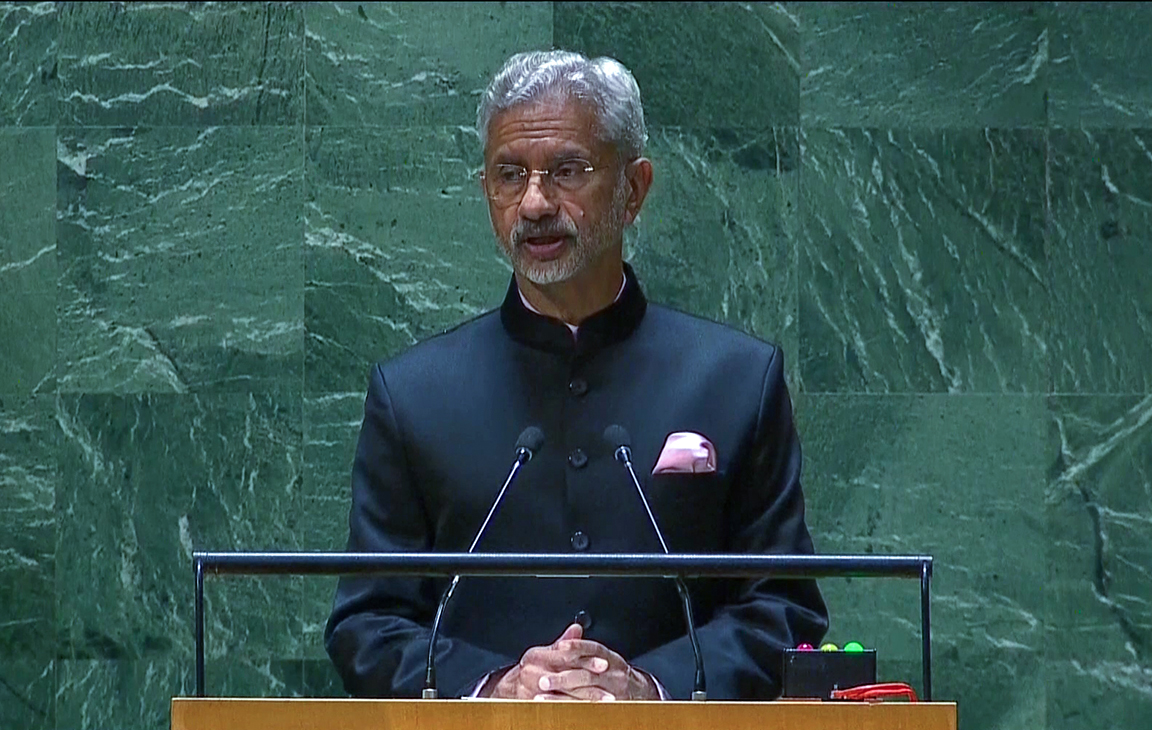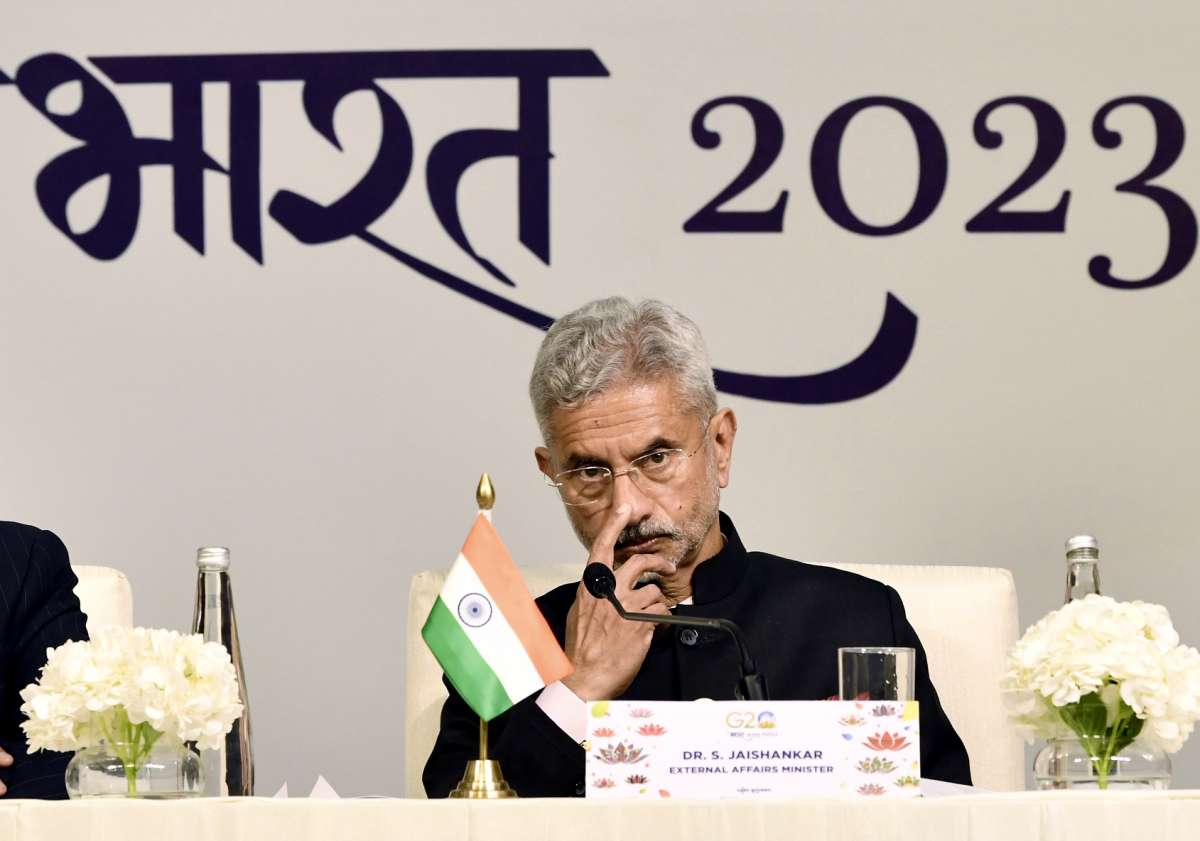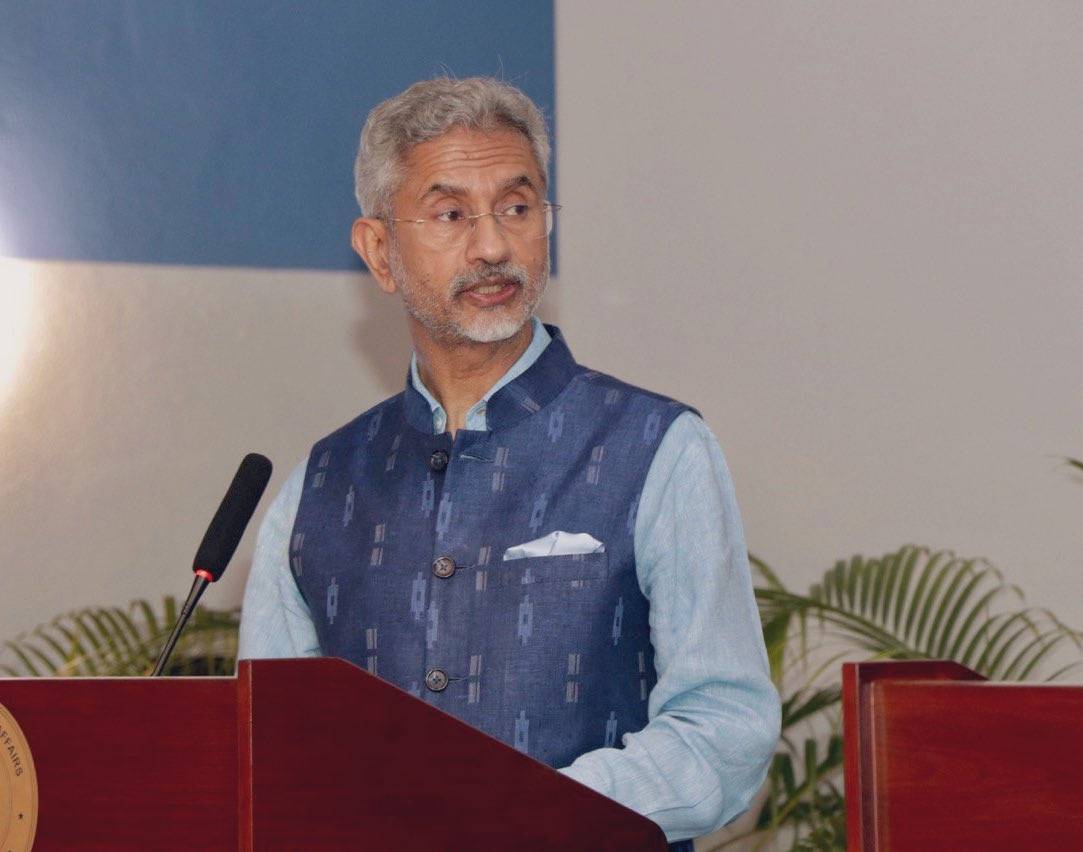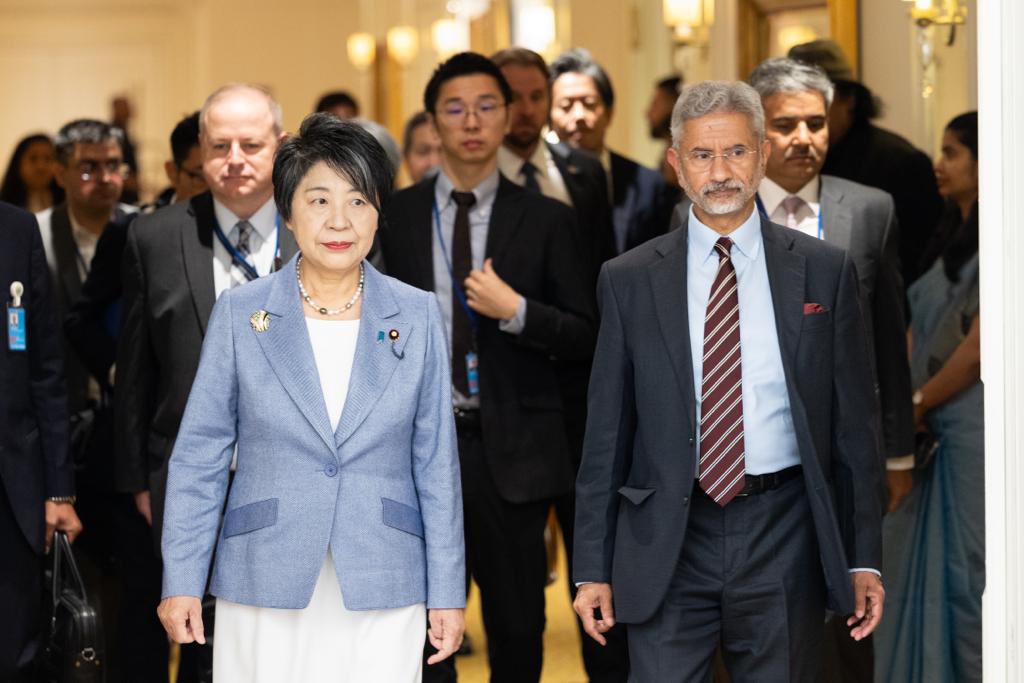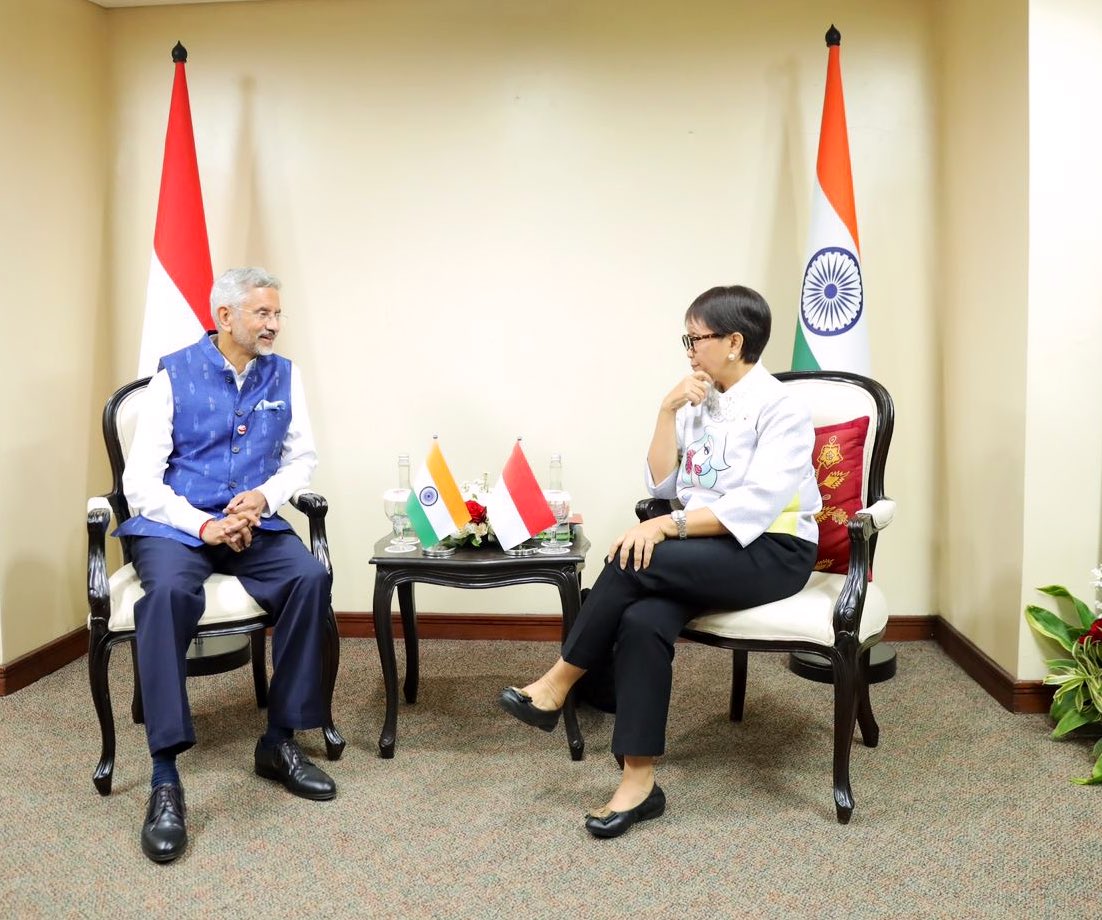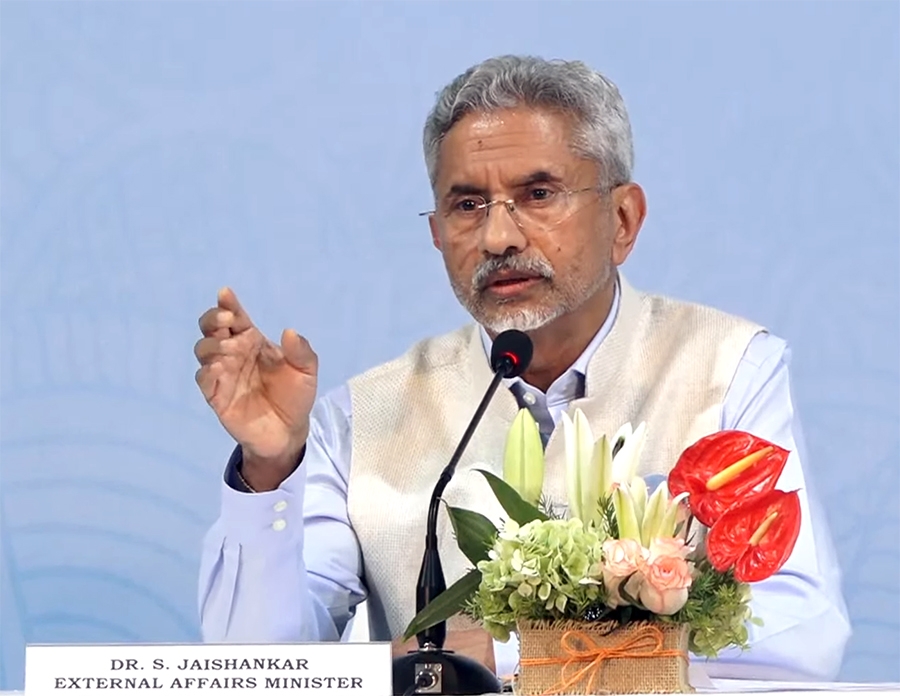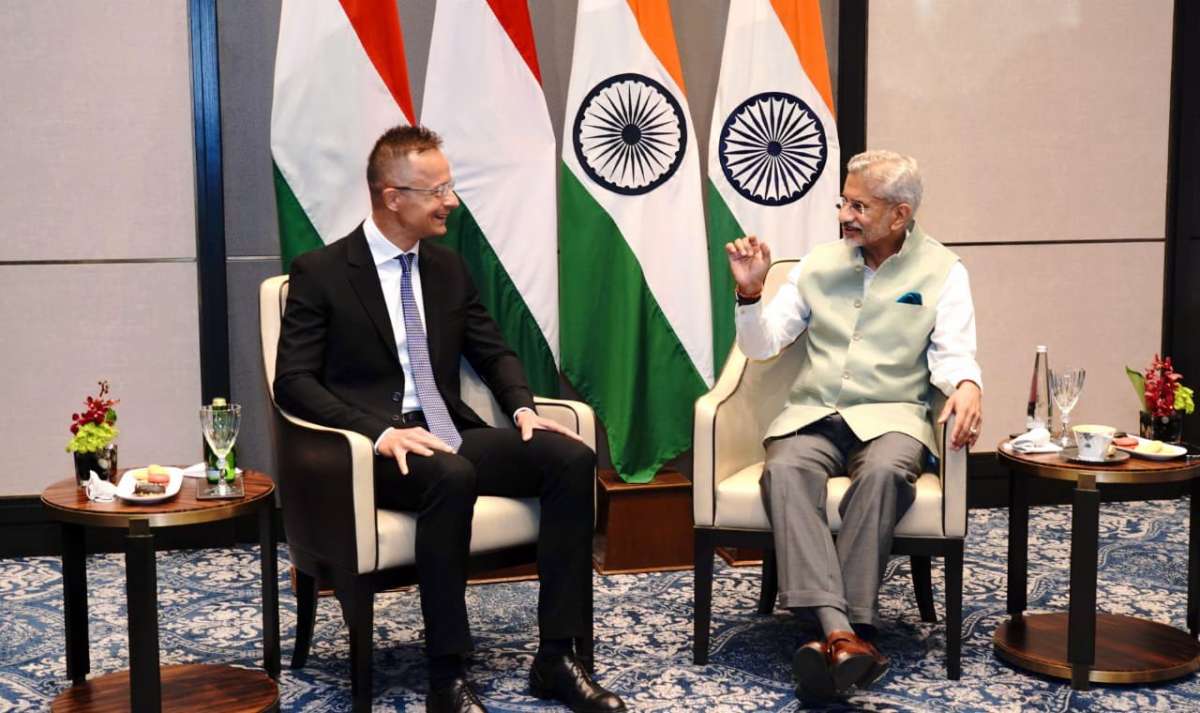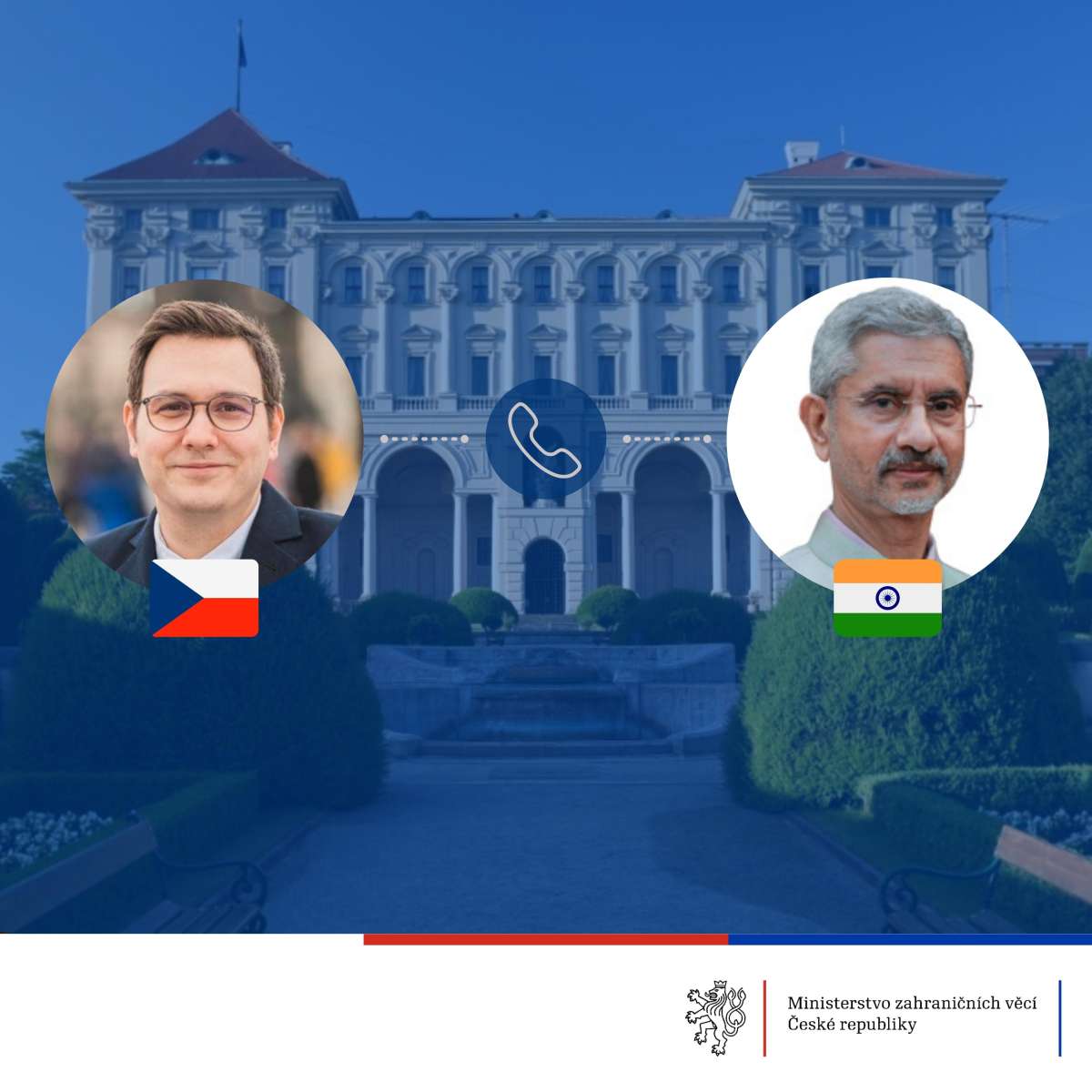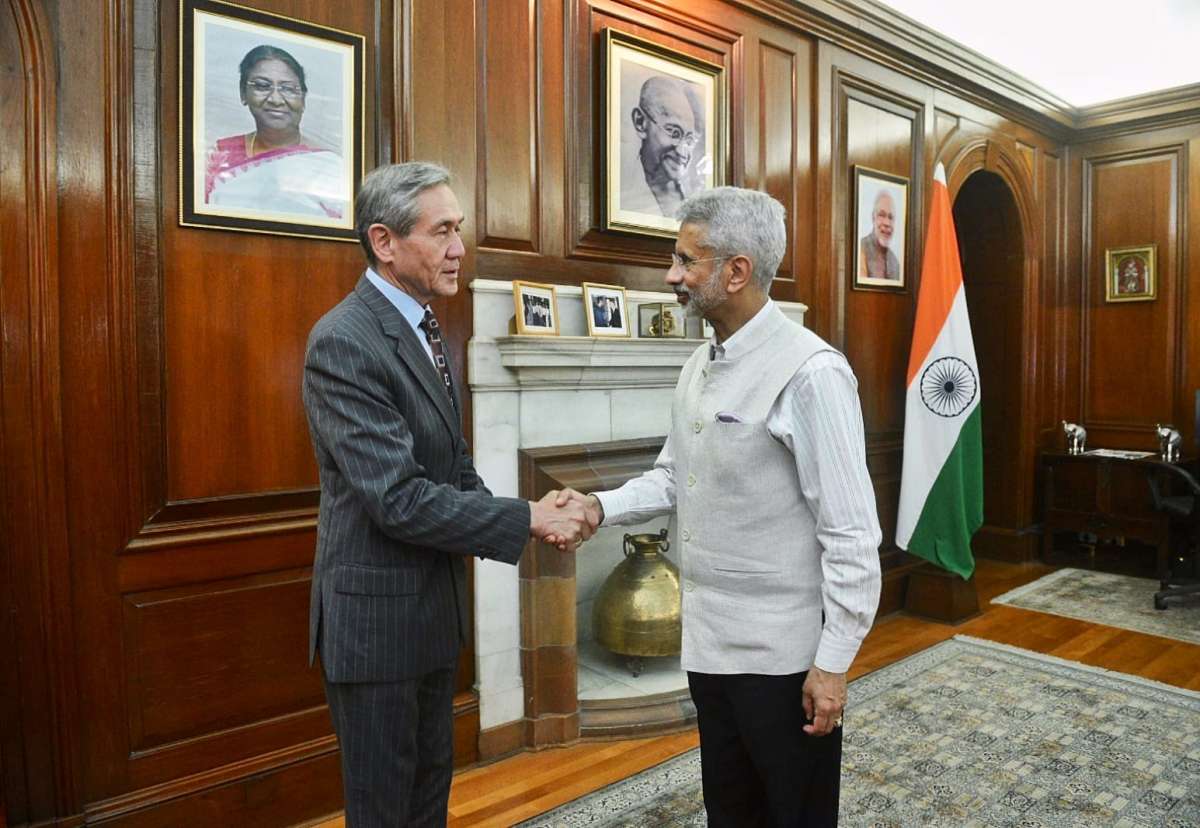EAM Dr S. Jaishankar said there is a thrust on the promotion of a rules-based order and respect for the UN Charter is also invoked and that rules will work only when they apply equally to all.
External Affairs Minister S Jaishankar on Tuesday said that “political convenience” should not be countenanced in determining responses to terrorism and extremism in an apparent reference to Canada amid a diplomatic standoff between the two countries.
Addresing the United Nations General Assembly, Jaishankar also said that respect for territorial integrity and non-interference in internal affairs cannot be exercises in cherry picking.
He said there is a thrust on the promotion of a rules-based order and respect for the UN Charter is also invoked and that rules will work only when they apply equally to all.
“But for all the talk, it is still a few nations who shape the agenda and seek to define the norms. This cannot go on indefinitely. Nor will it go unchallenged. A fair, equitable and democratic order will surely emerge, once we all put our minds to it. And for a start, that means ensuring that rule-makers do not subjugate rule-takers. After all, rules will work only when they apply equally to all,” he said.
He referred to “vaccine apartheid” and also said that climate action too cannot continue to witness an evasion of historical responsibilities.
“The power of markets should not be utilized to steer food and energy from the needy to the wealthy. Nor must we countenance that political convenience determines responses to terrorism, extremism and violence,” the minister said.
“Similarly, respect for territorial integrity and non-interference in internal affairs cannot be exercises in cherry picking. When reality departs from rhetoric, we must have the courage to call it out. Without genuine solidarity, there can never be real trust. This is very much the sentiment of the Global South,” he added.
The relations between India and Canada have plummeted over the activities of Khalistani activists including their threats to India’s High Commission and Consulates in Canada.
There has been diplomatic tit-for-tat following Canada’s decision to expel an Indian diplomat. India said last week that no information has been shared by Canada regarding the killing of a Khalistani terrorist following allegations by Canadian Prime Minister Justin Trudeau.
Answering queries during a press conference last week, Ministry of External Affairs spokesperson Arindam Bagchi said that if there is any country that needs to look at reputational damage, it is Canada.
“I think it is Canada and its growing reputation as a safe haven for terrorists, for extremists, and for organized crime. And I think that’s a country that needs to worry about its international reputation,” Bagchi had said.
The spokesperson said terrorism is being funded and supported.
“We know this for some time, from our western neighbour Pakistan. But the issue of safe havens and places to operate is being provided abroad, including in Canada… The question is, do we have the political will to address terrorism? Or we want to justify it and condone it,” Bagchi had said.
In his remarks at the UNGA, Jaishankar said the United Nations will be hosting the Summit of the Future next year.
“This should serve as a serious opportunity to drive change, champion fairness and reform multilateralism, including the expansion of the Security Council memberships. We must address global challenges imbued with the conviction that we are one earth and one family, with one future,” he said.
Jaishankar said India has entered the Amrit Kaal, a quarter century “where greater progress and transformation awaits us”.
“We are confident that our talent and creativity, now so visibly unleashed, will power us forward. The world saw a glimpse of what is to come when our Chandrayaan-3 landed on the moon.
“Today, our message to the world is in digitally enabled governance and delivery, in the widening ambit of amenities and services, in rapidly growing infrastructure, and in our energetic Startup culture. It is visible too in vibrant cultural expressions, such as in the arts, yoga, wellness, and lifestyle. Our latest assertion is in a pathbreaking legislation to reserve one-third of the seats for women in our legislatures,” he said.
Jaishankar said he represents a society where ancient traditions of democracy have struck deep modern roots.
“As a result, our thinking, approaches and actions are now more grounded and authentic. As a civilizational polity that embraces modernity, we bring both tradition and technology equally confidently to the table. It is this fusion that today defines India, that is Bharat,” he said. (ANI)
